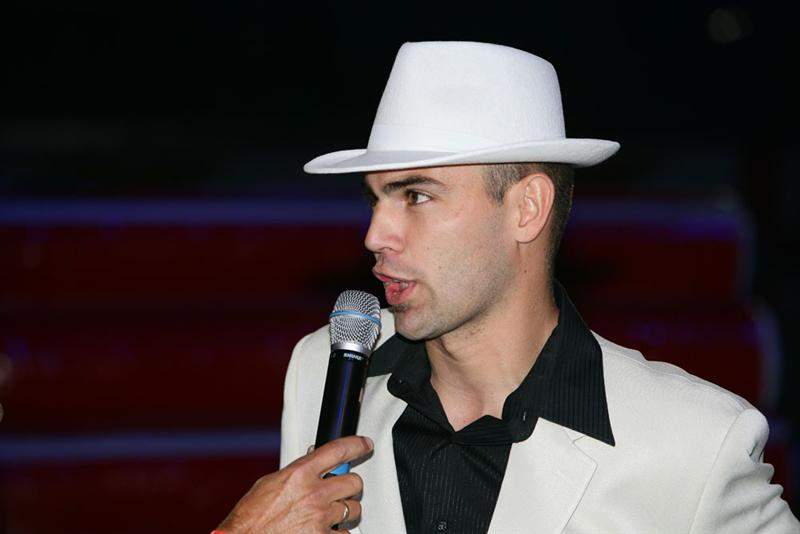The Bercy Supercross is among the most historic and legendary ongoing supercross events in the world. With San Manuel Yamaha’s James Stewart thoroughly dominating this past weekend’s event, we decided to look back at the history of the Bercy Supercross and check out its past winners to see how much of a correlation there is from a King of Bercy crown to success in the following year’s AMA Supercross Championship. This is a long one, but bear with us. If you pay attention, you may see a pattern develop.
The first-ever Bercy Supercross was actually held in the Spring – in March of 1984. It was the only one ever held at that time of year. David Bailey was the King of Bercy at that event, and that didn’t translate to the 1984 title. However, Bailey was the AMA Supercross Champion the previous year (1983) and followed that up with the King of Bercy title.
The first “off-season” Bercy Supercross came later that same year. Johnny O’Mara was the King of Bercy in December of 1984, after having just won the Insport 250cc Supercross Championship that year. O’Mara lost the AMA title in 1985 to Jeff Ward. However, O’Mara followed up with a title with a win at Bercy.
O’Mara repeated as the King of Bercy in 1985, but, Rick Johnson, the man who won the other main event on the weekend in France, ended up going on to win the 1986 AMA Supercross Championship. Johnny O’Mara was third in the championship, behind his other Honda teammate Bailey.
The 1986 running of the event saw Ward, Bailey and Micky Dymond all grab main-event wins, and it was again Bailey who came away with the King of Bercy crown. Bailey suffered his career-ending injury before the 1987 season started, and Ward ended up winning the AMA Supercross Championship.
Rick Johnson finally grabbed his first King of Bercy title in December of 1987, winning two of the three main events, while Ward won the other. Johnson won the 1988 AMA Supercross Championship the following season.
Ward won first King of Bercy crown following that season, and he did so without winning a single main event, as Johnson, Guy Cooper (on a Honda) and Ron Lechien took the main-event wins.
The 1989 AMA season saw the emergence of Jeff Stanton and the injury of Ricky Johnson. Johnson broke his wrist badly at Gatorback after winning five of the first AMA Supercross races of the season, leaving the winner of the other race – teammate and training partner Jeff Stanton – to pick up the pieces for Honda. Stanton won both the 250cc SX and MX titles. Johnson would return to race Bercy, and that dogged determination landed him yet another King of Bercy crown in the 1989 off-season. For 1989, the promoters made the event four nights instead of just three, with a day off between nights one and two and nights three and four. During the day off, the promoters redesigned the track to run in the opposite direction. Johnson won night one, while 17-year-old Damon Bradshaw won night two, Suzuki’s Larry Ward won night three, and Australian Jeff Leisk won night four. Hometown favorite Jean-Michel Bayle was on the podium three of the four nights. Bradshaw was the fifth main-event winner in the history of the event, and Leisk was the first non-American to win a main event at Bercy.
The following season saw Stanton return to the top of the heap in the AMA Supercross Championship, trailed closely by his new teammate Bayle. Bayle followed his runner-up AMA Supercross performance with the first overall win for a non-American at Bercy, as the Frenchman won three of the four nights, while Stanton won the other. The 1990 Bercy event also saw the introduction of the first 125cc “Prince of Bercy” title, which went to Jeff Emig, who did not win a main event. The winners were Greg Albertyn, Mike Craig and Stefan Everts (who won two mains).
Bayle set a new record during the following AMA Supercross Championship, winning eight main events on his way to the title in 1991. His performance at Bercy in 1990 seemed like a precursor to the 1991 championship. At Bercy later that year, Bayle continued his dominance. Although he only won one main event in the now three-race format, he won the overall again. Bradshaw and Larry Ward won the other two nights. Emig repeated as Prince of Bercy, again without winning a single main event. Frenchman Yves Demaria won one of the three 125cc main events, while Jeremy McGrath won the other two.
That led into the 1992 AMA Supercross Championship, where Bradshaw made sure that Bayle’s single-season win record was short-lived, winning nine events on the season. However, he lost the title to Stanton at the final race of the season. Stanton went on to also defeat Bayle at the following Bercy Supercross. Doug Henry won the Prince of Bercy title in 1992 on a CR125R, winning two mains, while Buddy Antunez won the other main event. Mickael Pichon, at 17 years of age, garnered his first podium in the 125cc class at Bercy.
Bayle retired from motocross and supercross and went road racing, and many of the other racers wish they had, as the 1993 AMA Supercross Championship belonged to rookie 250cc racer named Jeremy McGrath, who set another new single-season win record with 10 wins. McGrath followed that up by winning two of the three nights at Bercy for his first King of Bercy crown. In the 125cc class, Kawasaki-mounted Ryan Hughes swept all three nights on his way to the Prince of Bercy crown.
McGrath would win the next three AMA Supercross championships, but he only managed to win one of the next three King of Bercy crowns, even though he competed every year. Mike LaRocco won it in 1994, McGrath in 1995, and Hughes became the first rider to win both the Prince of Bercy and King of Bercy crowns with his win in 1996 (despite not winning a single main event).
Neither LaRocco nor Hughes turned their King of Bercy titles into supercross championships.
Our own David Pingree was the 1995 Prince of Bercy, losing only one of six races to David Vuillemin, who was the Prince of Bercy in 1996 and 1997.
Emig became the second rider to win both Prince and King titles at Bercy in 1997, as he won two of the six races. That year. Damon Huffman also won two, Yamaha-mounted Jeremy McGrath won one, and his teammate Jimmy Button won one. This followed a successful supercross season for Emig, rather than preceding one.
After many years of trying, Larry Ward finally won the King of Bercy title in 1998, winning three of the six main events. His Suzuki teammate Robbie Reynard won two races and McGrath won one. Nick Wey won four of the six mains to top the Prince of Bercy event, with the other wins going to Edgar Torronteras and Johnny Aubert. Neither Ward nor Reynard would be a factor in the following AMA Supercross Championship, although Ward did win the Seattle Supercross in 1999.
The 1999 Bercy Supercross served as Jeremy McGrath’s return to action after taking the AMA Motocross Championship off. He was hungry, and won five of the six main events. Unfortunately, those five wins followed a mechanical DNF in the first main event, and the consistent Vuillemin ended up with the King of Bercy crown. For the first and thus far only time in the event’s history, it was a French sweep, with Rodrig Thain winning the Prince of Bercy crown on a KTM. In the following AMA Supercross Championship, McGrath again won the title, while Bercy rival Vuillemin was second with four wins.
Vuillemin returned to Bercy with a vengeance in 2000, winning all six main events over McGrath, Sebastien Tortelli and many others. Justin Buckelew was crowned the Prince of Bercy overall, though Thain, Eric Sorby and Brett Metcalfe also won main events. Unfortunately for Vuillemin (and McGrath), 2001 saw Ricky Carmichael finally figure out Supercross, and win 14 of the 16 events.
Vuillemin returned to Bercy and won the title yet again in 2001, sweeping every main event, while Brock Sellards won the Prince of Bercy crown without winning a single main event. The mains were split between Thain and Ivan Tedesco. Vuillemin came out with a vengeance in the 2002 AMA Supercross championship, winning the first two mains after Carmichael crashed his brains out at round one. He caught and passed Carmichael again at Indianapolis, but Carmichael would ultimately prevail in the championship after Vuillemin hurt himself at a Transworld Motocross photo shoot. Vuillemin still finished second in the series, though.
At the 2002 Bercy Supercross, big-name stars were harder to come by due to the crowded MX and SX season in America, and the 20th running of the Bercy Supercross was run completely on 125cc two-strokes and 250cc four-strokes (a format that would remain until the 2007 event). Grant Langston won the overall King of Bercy title on his KTM, splitting wins with Honda-mounted Chris Gosselaar and Travis Preston. The 20th running of the event also saw the introduction of the USA vs. France vs. Rest of the World scoring system, which the USA won. Although he was hurt throughout most of the AMA Supercross Championship, Langston did win the 125cc National MX Championship the following year in 2003.
Riding a YZ250F, Vuillemin returned to the top at the 2003 Bercy Supercross, splitting wins with Andrew Short and Grant Langston. It was Vuillemin’s last King of Bercy title (he’s not racing Bercy yet), and USA again won the team event. DV couldn’t carry that success into the 2004 AMA Supercross Championship, however. Reed won that title, followed by Kevin Windham, LaRocco, and then Vuillemin.
Short won all three mains in 2004 (on a Suzuki) on his way to his first King of Bercy title, and the USA again won the team event. And then Short repeated in 2005, sweeping all three mains on a Honda, while again the USA won the team event. Short was unable to turn either win into AMA Supercross titles.
{LINKS}Last year marked the return of big bikes to Bercy, and Yamaha-mounted Chad Reed dominated the event, winning all three main events and losing only one race, while the USA again won the team event. He took that momentum into the 2008 AMA Supercross Championship, winning the title going away.
With Reed racing Suzukis in Australia (and absent from Bercy), and James Stewart now on Reed’s former team, Stewart won every single race he was in, including every main event, while the USA again won the team event.
Looking through the history of the Bercy Supercross, it seems more often than not that it was more of a carry-over of success from that year, rather than a springboard for success the following year. However, since the return of big bikes to Bercy, the current Bercy champ is one for one. Will the Bercy Factor be a factor? We’ll see how it plays out come May of next year.









